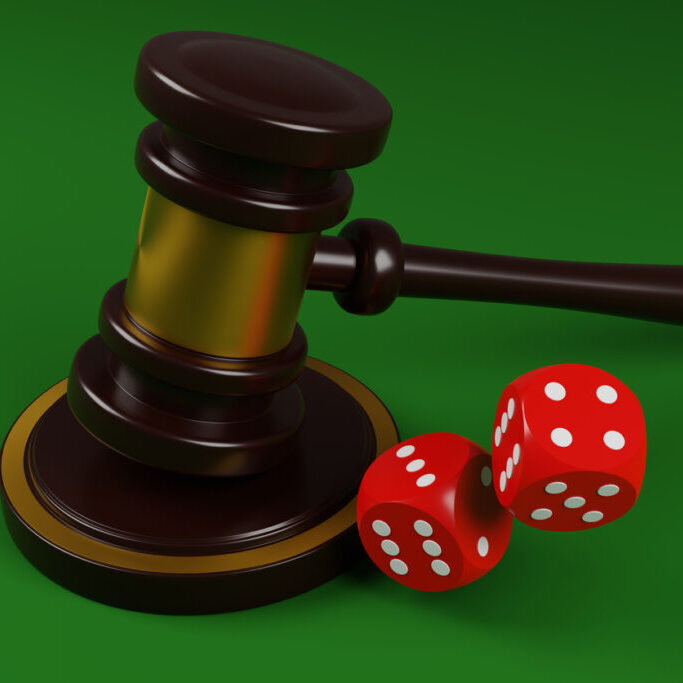Insights < BACK TO ALL INSIGHTS
Pennsylvania’s Aggressive and Conflicting Approach to Skill Gaming and Versus the House Fantasy Sports Operators
Pennsylvania’s Aggressive and Conflicting Approach to Skill Gaming and Versus the House Fantasy Sports Operators
By: Steven Eichorn
The early part of 2024 has proven to be unexpectedly eventful in Pennsylvania in regards to sports betting, fantasy contests, and skill games. There is always an interesting dynamic- and sometimes tension- in regards to the different regulatory regimes and which one applies to a specific platform. For example, who takes ownership over a game that offers NFL themed lottery tickets? What regulation applies to game offerings involving a NBA pick em style contest? Is a contest that offers a player versus the house game considered sports betting?
PGCB’s crackdown on “versus the house” sports betting styled products
During the past year or so, there have been a number of different fantasy sports operators that offer various “versus the house” competitions that mimic the sports betting offerings available on licensed sports books. This gave them several advantages- first, this allowed them to operate in licensed sports betting states without pursuing a more expensive sports book license and/or partnership with a land-based casino. The lack of a land-based partnership and sports betting license enabled these operators to launch their products directly to customers far quicker than a typical sportsbook product launch because (i) the partnership with a land-based casino partner entails significant contract negotiations and costly partnership fees that delay any potential launch, and (ii) because of the more rigorous lab testing required for sports betting licensees. Even more critically, it allowed these operators to offer their product in states that did not permit sports betting because they were fantasy sports/skill games and not “sports betting.” Nonetheless, several states (e.g. Arkansas, Michigan, Missouri, New York, etc.) have cracked down on these operators and issued cease-and-desist letters because those state regulators believed these “versus the house” competitions constituted unlicensed sports betting in their states.
The Pennsylvania Gaming Control Board (“PGCB”) has taken a slightly different approach and issued general guidance to industry that sets forth its negative stance against “versus the house” fantasy sports products that have the “look-and-feel” of fantasy sports but also contain similarities to sports betting products.
PGCB issued guidance[1] because “[i]t has become clear to the Staff at the Pennsylvania Gaming Control Board (“Board Staff”) that Operators are increasingly attempting to pigeonhole what should, by the definitions in the Act, be classified as a Sports Wagering activity, into a Fantasy Contest.” Although the PGCB did not specify what would be the consequences for violators, it did promise to review all fantasy contests currently offered in Pennsylvania and to review all products to be offered before a license is issued going forward.
In its guidance, the PGCB explained that a fantasy contest must be against another player and not against the house.[2] Further, the results in fantasy contests must be the results of accumulated statistics and not dependent on whether a player reaches a specified threshold (e.g. over/under styled contests).[3] Therefore, PGCB summarized: “To put it succinctly: For an offering to be a Fantasy Contest, the prize must be clear to the contestants from the beginning and cannot change absent relatively rare occurrences of a tie. If it changes – or is likely to change based upon the number of winners and multiple winners are expected (e.g. it is a prize pool) – it is not a Fantasy Contest.”
Based on the statutory requirements for an activity to qualify as fantasy sports, PGCB’s guidance clarified that “versus the house” competitions are included in the sports betting laws and regulations and are not fantasy contests. As concisely put by PGCB, “an activity cannot be both Sports Wagering and a Fantasy Contest.”
Interestingly, in addition to the standard concerns raised by states with operators utilizing fantasy sports licenses to offer sports betting products, the PGCB highlighted that there was a responsible gaming and customer protection issue because of the different age restrictions for fantasy sports and sports betting in Pennsylvania. Namely, determining whether a platform constituted fantasy sports or sports betting means they can be offered to different ages under Pennsylvania law: “more importantly, the fact that Fantasy Contests are available to eighteen-year-olds whereas Sports Wagering – and wagering generally – is restricted to those twenty-one years of age and above.”
Pennsylvania High Court meanwhile Heads in a Different Direction on Skill Games
While the PGCB is taking a conservative approach to the gameplay definitions and cracking down on platforms that it believes offer sports betting products masquerading as fantasy sports, the Pennsylvania courts seem to be headed in the other direction because they have recently issued favorable decisions on whether games that contain both chance and skill are considered games of skill (and thus exempt from gambling prohibitions) or games of chance (and thus illegal gambling).
The recent appeal for a hearing by the state of Pennsylvania was denied by the Supreme Court of Pennsylvania. The Supreme Court’s denial means it let stand the lower appellate court affirmation that slot-themed games involving skill exercised by the player contained sufficient presence of skill to determine that the machines were games of skill and therefore not subject to the gambling prohibitions.[4]
The original case started a few years ago when the Bureau of Liquor Control Enforcement (“BLCE”) seized eleven (11) electronic skill game machines at several liquor-licensed establishments and the seizure was challenged in court. At the trial court level, the BLCE argued that the games were similar to slot machines and that chance predominates over skill, however, the trial court rejected that argument and concluded that the games were predominately games of skill. Thus, on May 18, 2022, the trial court ruled that the skill game machines did not constitute gambling devices per se and ordered the return of all of the seized gaming machines. So, even though the machines had a “look-and-feel” of slot machines, the court held there was a significant enough amount of skill exercised by players to convert that game into a game of skill (and therefore not subject to the illegal gambling devices prohibitions).
BLCE appealed that decision to the Commonwealth Court because it argued that the machines were gambling devices because the skill utilized was only a secondary game that was being offered as pretext to conceal the true nature of the games as games of chance. However, on July 24, 2023, the appellate court applied the “predominate factor test” in determining that the games were games of skill and it affirmed the trial court’s decision.[5] BLCE then appealed (as its last chance of appeal) to the Supreme Court of Pennsylvania, which denied BLCE’s request for a hearing on appeal.[6] Therefore, the decision of the Commonwealth Court is the law of the land in Pennsylvania and these hybrid games are considered games of skill and not prohibited by the illegal gambling prohibitions.
Possible adaptation of “versus the house” games
In light of the PGCB guidance that clearly targeted the “versus the house” games, it is unclear what the next step for these “versus the house” operators will be. Interestingly, the above court decision may provide an avenue for these “versus the house” operators because the case law affirmed that hybrid games -even with a “look-and-feel” of slot machines- may very well be considered games of skill and not subject to illegal gambling prohibitions in Pennsylvania. Therefore, one can imagine that a “versus the house” operator will attempt to argue that its games are skill games, even though there are some elements of chance because they are based on the sporting contests, because hybrid games do not have the “look-and-feel” of sports betting and can be considered predominantly games of skill and exempt from the legal gambling prohibitions.
There is likely a fair amount of pressure on these “versus the house” operators to find a legal basis to continue operating in Pennsylvania, therefore, one would expect they would either adopt a skill-based argument or some other form of argument that provide a legal basis for their operations continued operations in Pennsylvania. Assuming that they continue operations in Pennsylvania, it will be interesting to see what the PGCB response will be and whether it issues additional guidance because it believes these “versus the house” operators are “attempting to pigeonhole” their product into skill games.
[1] Industry Guidance 2024-04, Distinction Between Sports Wagering and Fantasy Contests.
[2] “Additionally, it is worth pointing out that to be a Fantasy Contest, the activity in question cannot be against the house but rather must be against other players or another player. The Act specifies that the Contest must be among “Participants” which it specifically separates from Licensees, Operators, Gaming Entities, or any other level of employee by the Facility or Operator.”
[3] “The accumulation, crucially, must be of statistical results and nothing else (e.g. the number of wagers or whether a particular statistical result exceeded some threshold) to be a Fantasy Contest. Anything deemed to meet that definition strictly will be determined to be a Fantasy Contest and anything that fails that definition strictly will be Sports Wagering.”
[4] As described in the appellate decision, these hybrid games worked as follows: “The gaming machines are “nudge” or “hot swap” games, where a player inserts cash and receives digital credits on the machine. The player then selects a theme, wager amount, and spins the reels. Once the reels stop, the “nudge” player can rotate or “nudge” the reels to attempt aligning them in a winning pattern. The “hot swap” player can substitute or swap one of the reel symbols with a symbol held in a pool outside the reels. When a player has the possibility of creating a winning pattern, the machine will not allow a player to proceed to the next spin, but rather, forces the player to attempt a nudge or swap. If a player successfully creates a winning pattern through nudging or swapping, they are rewarded with credits based on the wager, and can spin the reels again. If the player cannot create a winning pattern, the game presents an on-screen option to engage in a secondary round of play called “Follow the Banana,” which has its own rules and gameplay. It is a memory game that displays an increasingly difficult pattern of bananas, and if the player does it successfully, he or she can recoup 104% of the last wager on the game of chance.” Pinnacle Amusement, LLC v. Bureau of Liquor Control Enf’t, 298 A.3d 447, 449–50 (Pa. Commw. Ct. 2023), as corrected (July 24, 2023), reargument denied (Aug. 21, 2023), appeal denied, No. 479 MAL 2023, 2024 WL 1167049 (Pa. Mar. 19, 2024)
[5] Pinnacle Amusement, LLC v. Bureau of Liquor Control Enf’t, 298 A.3d 447, 449 (Pa. Commw. Ct. 2023), as corrected (July 24, 2023), reargument denied (Aug. 21, 2023), appeal denied, No. 479 MAL 2023, 2024 WL 1167049 (Pa. Mar. 19, 2024).
[6] Pinnacle Amusement, LLC v. Bureau of Liquor Control Enf’t, No. 479 MAL 2023, 2024 WL 1167049, at *1 (Pa. Mar. 19, 2024).





